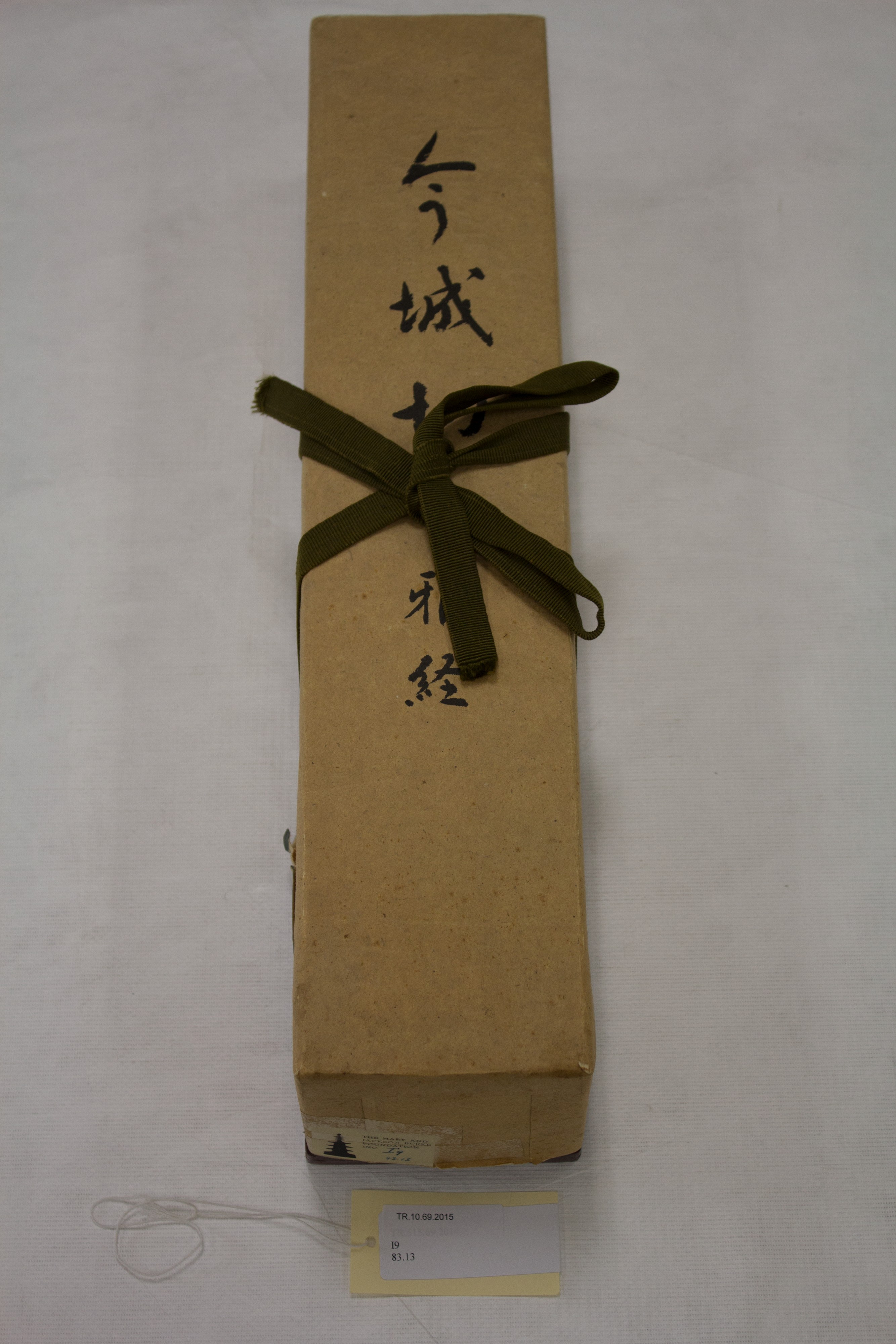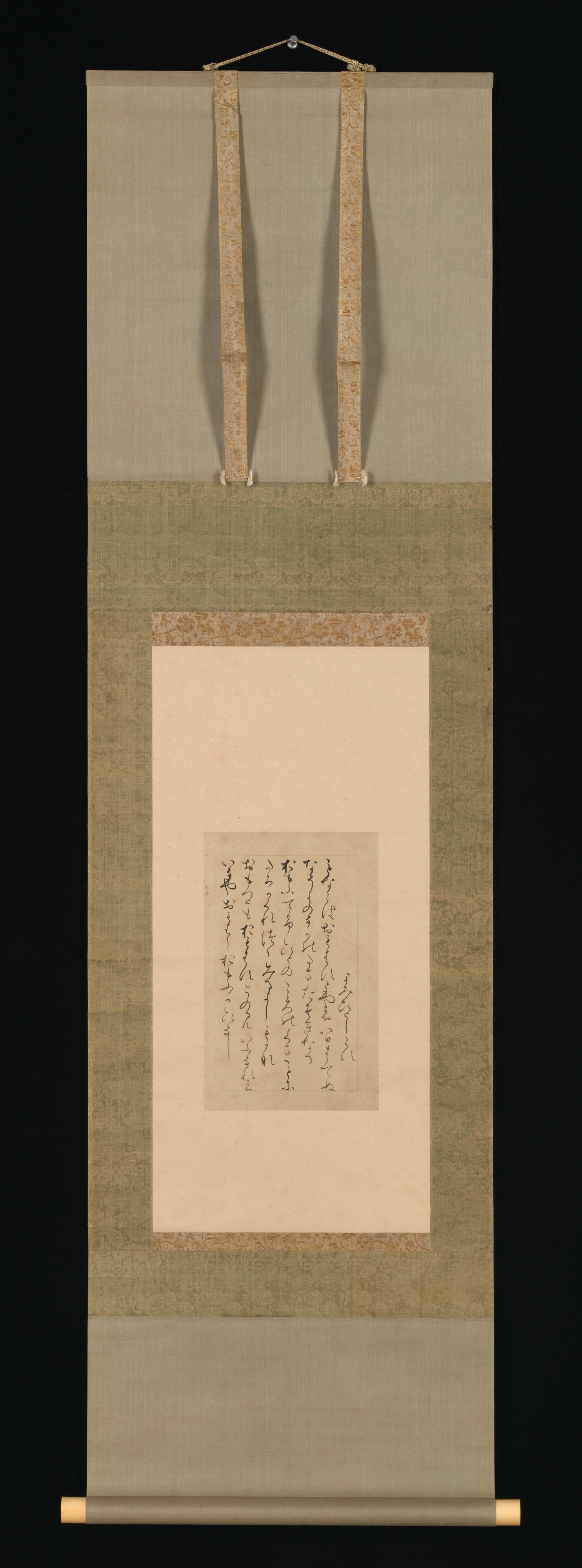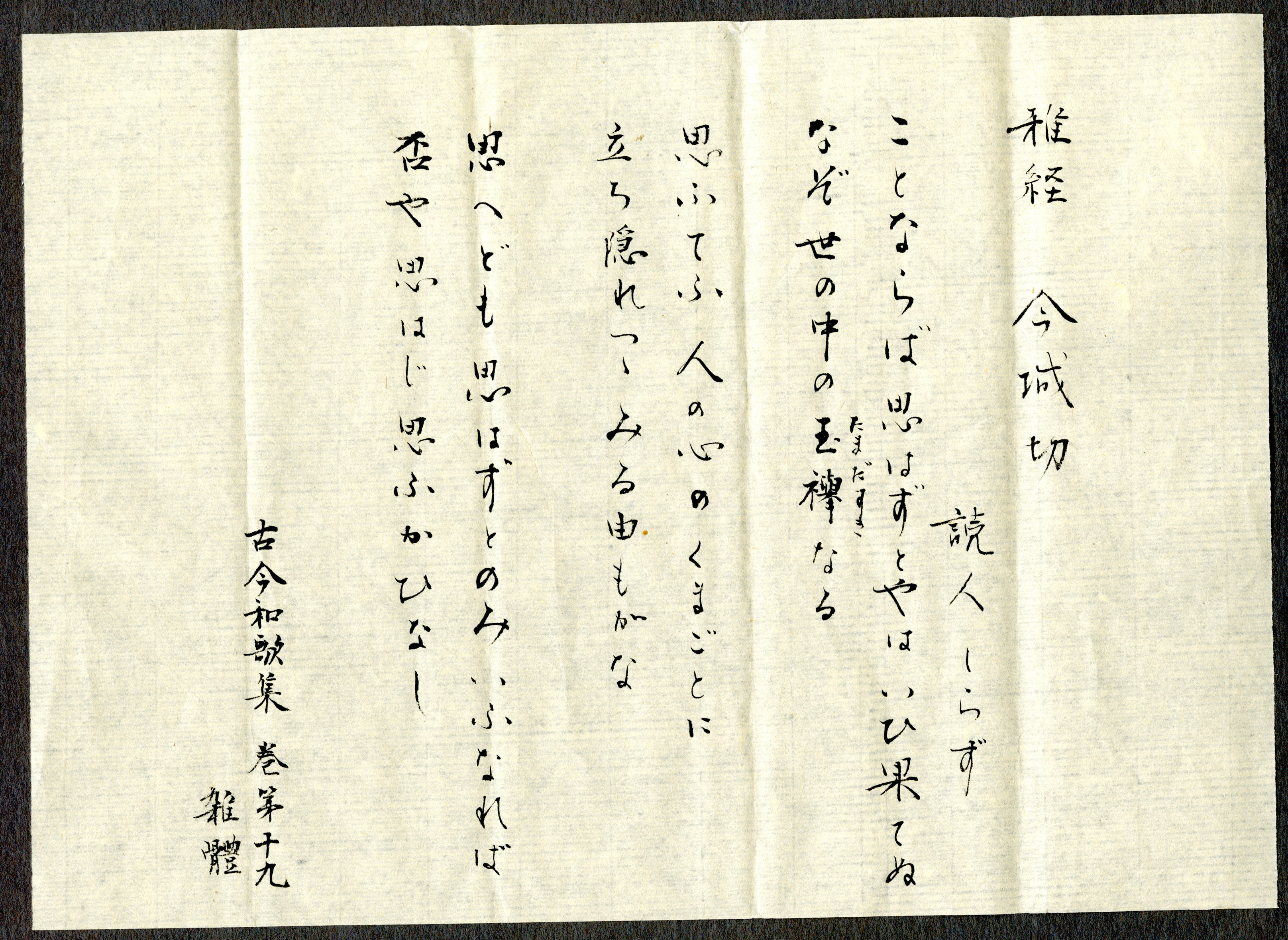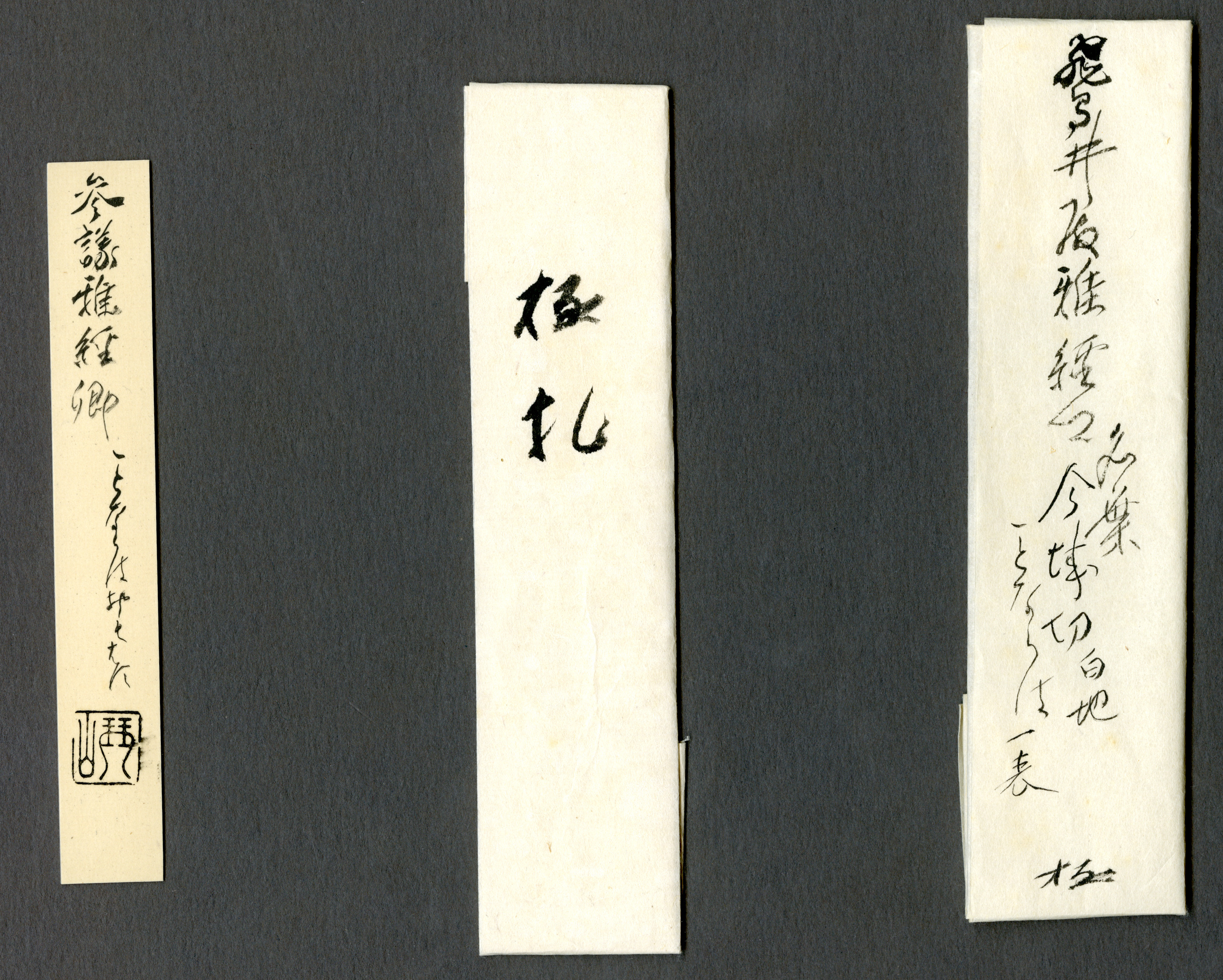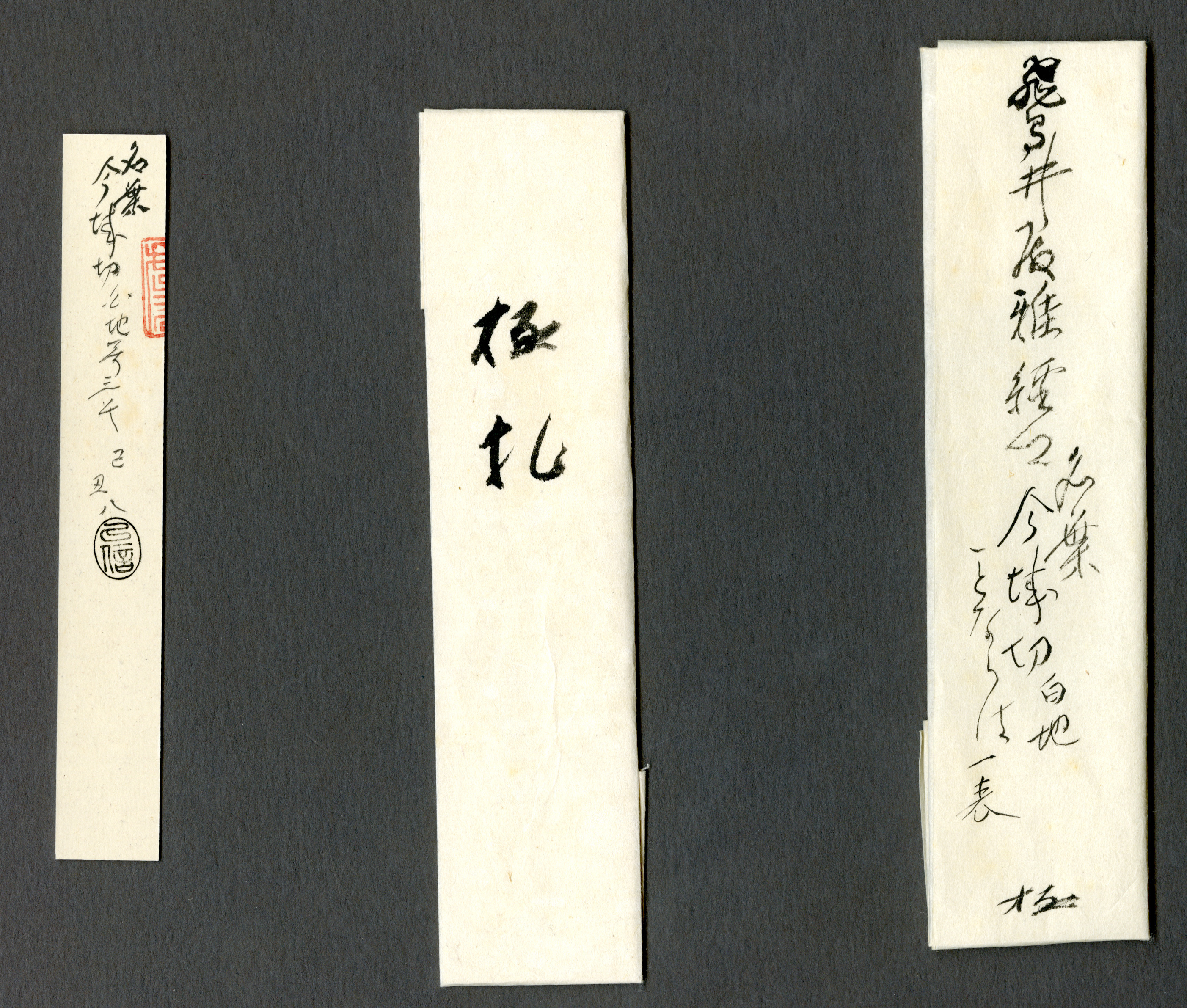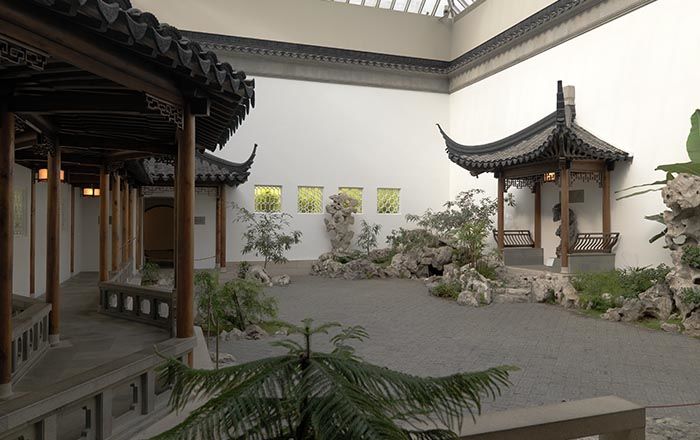Three poems from the Collection of Poems Ancient and Modern (Kokin wakashū), known as the “Imaki Fragment” (Imaki-gire)
Fujiwara no Norinaga Japanese
Not on view
By the 1100s, many courtiers and court ladies of the palace were inscribing kana calligraphy with a firmer brush compared to previous generations. Traditionally, the inscription of these poems was attributed to the courtier Asukai Masatsune (1170–1221), but modern scholarship has securely identified it as by Norinaga, the brother of Masatsune’s grandfather, helping to establish a more solid framework of how kana writing styles evolved.
Due to rights restrictions, this image cannot be enlarged, viewed at full screen, or downloaded.
This artwork is meant to be viewed from right to left. Scroll left to view more.


